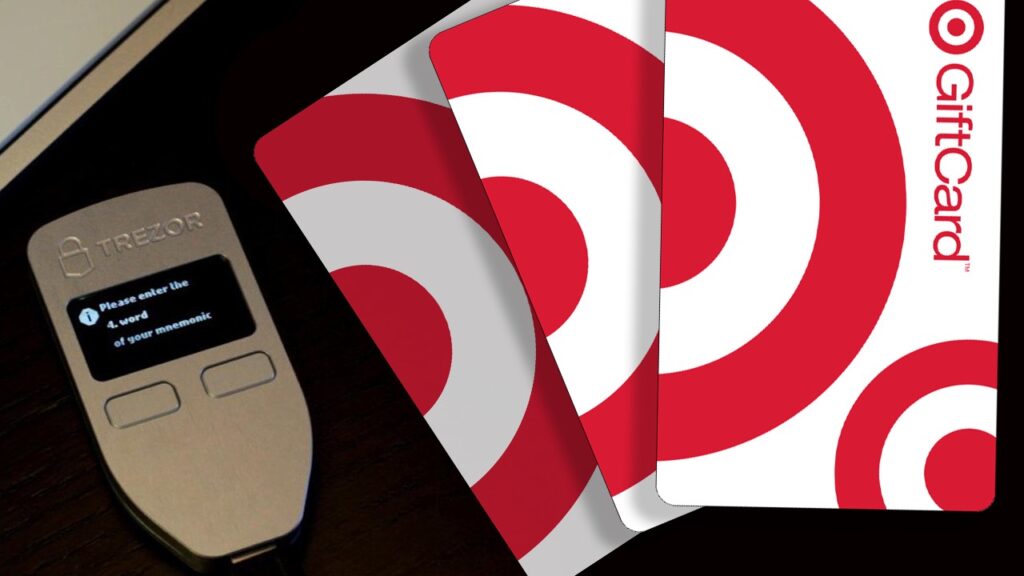
On September 22, 2021, a U.S. District Judge in San Antonio, Texas, rendered summary judgment on the civil forfeiture of 147 bitcoins worth $ 6.3 million held in a Trezor hardware wallet. According to the court filing, the crypto assets stemmed from a Target gift card fraud incident that started in 2016.
Gift Card Fraud Money Turned Into Bitcoin
A case involving gift card and bitcoin fraud was heard in the San Antonio District Court for the Western District of Texas. According to the court filing, an American named Jaymes Allen Clark worked at the retail chain Target as an Executive Team Leader of Assets Protection in San Antonio, Texas. Allegedly, Clark utilized his Target credentials to access Target’s gift card database and he reportedly obtained recently activated gift cards. After Clark detected newly activated cards, he took screenshots of the gift card account information.

The filing then claims Clark shared the gift card info with co-conspirators who then leveraged the accounts to purchase iTunes cards and “clean” Target cards. The U.S. prosecutors then claim that Clark was paid in bitcoin and at first he leveraged a Mycelium wallet. The bitcoins were then transferred to a Trezor hardware wallet which is referred to in the summary judgment as a “key ring”.
“Clark had a Trezor wallet (key fob one) with him when he was arrested,” the filing notes. “After his arrest, Clark was held at the GEO Detention Center in San Antonio, Texas. On September 21, 2017, Clark called his wife from GEO. At the beginning of each call originating from GEO, a recorded message advises that phone calls are recorded. During the call, Clark asked his wife if she had received a keychain from Secret Service agents and told her she could keep it or send the keychain to her friend Matt Baker (“Baker ”) In Portland.
The judgment adds:
Clark then told his wife the passcode to key fob one and said she could tell Baker the passcode too. Clark’s wife then sent the keychain to Baker. The tapes of Clark’s calls from GEO were turned over to the agents involved in the case.
Court Denies Clark’s Fourth Amendment Rights Were Violated, Revealing Whatsapp Messages
In the court judgment, Clark contends his Fourth Amendment rights were violated when he accessed the Trezor via the phone call arrangement with his wife from GEO. “Because the plaintiffs admit the keychain was not illegally seized and because neither of the plaintiffs have a reasonable expectation of privacy in Clark’s personal calls from GEO, the court dismisses the petition. to the extent that she seeks to suppress the search for keychain one, “the Texas court told details of the district judge.
Additionally, other “key fobs” are mentioned as the government confiscated 187.5 ethereum (ETH) and 76 bitcoin cash (BCH) from “key fob three,” and a $120,000 cashier’s check was forfeited. “Based on the evidence presented, the Court concludes that the government has discharged its burden, by presenting circumstantial evidence, that 147.18 Bitcoin constitutes proceeds attributable to Clark’s conspiracy,” the order notes.
The court filing also mentions that Clark and his co-conspirators did most of their business communications via Whatsapp’s instant messenger. In an October 19, 2016 Whatsapp conversation with a co-conspirator, Clark reportedly said, “I’m really excited that we’re going to make a nice big bitcoin wallet” and “we’ve come up with an amazing plan.” Twelve days later, on Halloween, Clark reportedly wrote: [bitcoin]. “


















